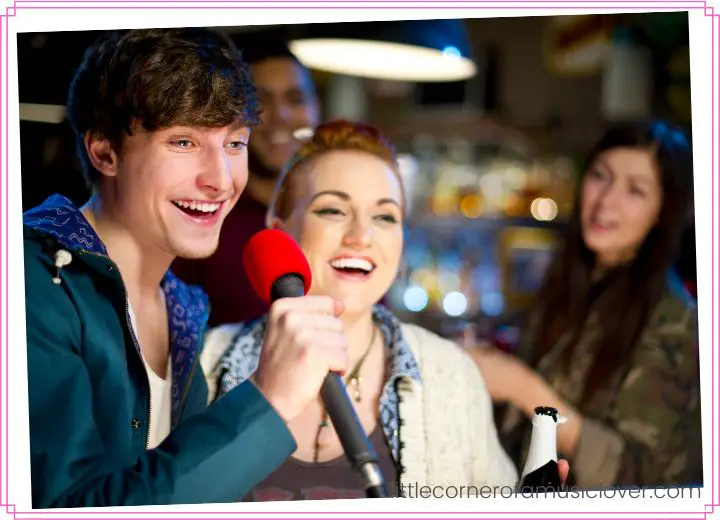We all love karaoke, those enthralling nights we spend with friends or family singing like there is no tomorrow.
We are captivated by the pleasure, the companionship, and the freedom of karaoke because it combines these elements so well.
But karaoke is so much more than mere entertainment. It can also revolutionize the educational system by fusing the allure of singing with the desire to study.
We look at the educational benefits of karaoke for students to help you understand how to merge learning with fun effectively!
The Science of Music: The Brain’s Symphony
Our love of music transcends both cultural differences and individual tastes. Music penetrates every area of our lives, whether it’s the gentle lullaby that soothes a newborn to sleep or the invigorating pulse that motivates a soldier into courage.
But music has tremendous power beyond just satisfying our ears. Ample research has shown how profoundly it affects the human brain. Music-making, listening, and singing increase attention, lower stress, and boost mood.
Even our brain’s gray matter structure can change due to this, growing in volume and interconnectedness. This is where karaoke’s magic shines through. We can witness exciting breakthroughs in learning by fusing singing with education.
The Power of Engagement
Karaoke blends the harmony of music with the rhythmic flow of words to produce a distinctive fusion of melodic storytelling. But what if these stories had a teaching purpose? This is where karaoke can play a major role in fostering positive change in education.
By its very nature, karaoke calls for active participation. Students follow the beat, read the words, and sing along while listening to the song.
This complex connection instantly stimulates multiple brain processes. When combined with instructional material, karaoke transforms into a captivating tool that actively and meaningfully engages students.
When concepts or facts are put into song and sung during karaoke sessions, they form memorable instructional lyrics. Students actively sing along, recalling not just the words themselves but also the facts woven into the song.
Thus, repetitive instruction may transform into synchronized learning, making teaching more effective. Imagine learning about the frog’s life cycle in the biology classroom through song or about poetic methods in literature class through a memorable chorus. This may be the new look of the classroom — vibrant, engaging, and musical.
Today, it’s essential that teachers adapt to the ever-changing student needs. Modern youth loves eclectic learning: one day, they’re at the library preparing for an exam, they consult write my paper for me online writing assistants, and the next, they want to merge learning with fun.
Routinely incorporating karaoke to engage students actively is a great strategy to ensure they always stay motivated.
Music And Memory: The Rhythm of Recollection
There is a reason why we can remember the song’s lyrics from ten years ago yet struggle to recall the details of a book we read last week.
This can be explained by the brain’s interaction with melody, rhythm, and music. Our brains are wired to perceive patterns, and music is naturally patterned.
The recurring melodies and rhythmic beats give our brains a simple recognition framework. This facilitates the recording and recovery of memories.
Karaoke adds yet another element to this. Singing not only increases participation but also works well as a mnemonic. It helps me remember things better.
This may be leveraged in education to produce a fun and effective learning environment that is participatory and memory-boosting.
When engaged in karaoke singing, students stop being passive receivers of knowledge. They engage in a participatory activity that can help them nurture their cognitive skills.
There is a reason why karaoke is becoming an inalienable part of music education. It allows for a multi-sensory experience, strengthens brain connections, and helps transmit information from short to long-term memory.
The Way Forward
Innovative educational approaches are urgently needed in a society where traditional teaching methods fall short of fully involving students. Karaoke has the power to engage students on a whole new level.
Our sense of expression, self-assurance, and camaraderie are all boosted by singing. What’s more, practicing karaoke encourages practice and fosters collaboration.
Indeed, karaoke could hold the key to opening up a whole new realm of learning.
***
Diane Sherron is a student psychologist and blogger. Diane spends her days helping students overcome the psychological stress that often accompanies college life.
Diane also routinely writes educational blog posts to help advance innovative educational approaches worldwide.

